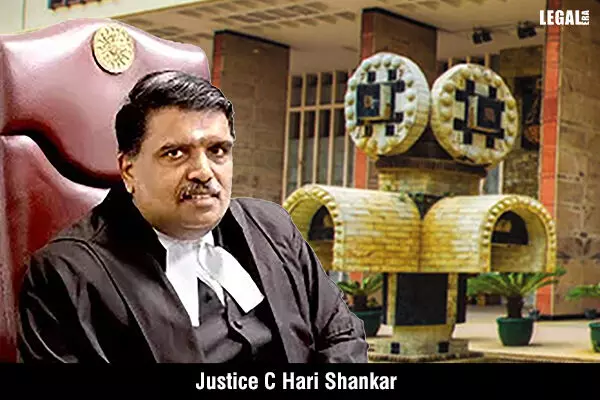- Home
- News
- Articles+
- Aerospace
- Artificial Intelligence
- Agriculture
- Alternate Dispute Resolution
- Arbitration & Mediation
- Banking and Finance
- Bankruptcy
- Book Review
- Bribery & Corruption
- Commercial Litigation
- Competition Law
- Conference Reports
- Consumer Products
- Contract
- Corporate Governance
- Corporate Law
- Covid-19
- Cryptocurrency
- Cybersecurity
- Data Protection
- Defence
- Digital Economy
- E-commerce
- Employment Law
- Energy and Natural Resources
- Entertainment and Sports Law
- Environmental Law
- Environmental, Social, and Governance
- Foreign Direct Investment
- Food and Beverage
- Gaming
- Health Care
- IBC Diaries
- In Focus
- Inclusion & Diversity
- Insurance Law
- Intellectual Property
- International Law
- IP & Tech Era
- Know the Law
- Labour Laws
- Law & Policy and Regulation
- Litigation
- Litigation Funding
- Manufacturing
- Mergers & Acquisitions
- NFTs
- Privacy
- Private Equity
- Project Finance
- Real Estate
- Risk and Compliance
- Student Corner
- Take On Board
- Tax
- Technology Media and Telecom
- Tributes
- Viewpoint
- Zoom In
- Law Firms
- In-House
- Rankings
- E-Magazine
- Legal Era TV
- Events
- Middle East
- Africa
- News
- Articles
- Aerospace
- Artificial Intelligence
- Agriculture
- Alternate Dispute Resolution
- Arbitration & Mediation
- Banking and Finance
- Bankruptcy
- Book Review
- Bribery & Corruption
- Commercial Litigation
- Competition Law
- Conference Reports
- Consumer Products
- Contract
- Corporate Governance
- Corporate Law
- Covid-19
- Cryptocurrency
- Cybersecurity
- Data Protection
- Defence
- Digital Economy
- E-commerce
- Employment Law
- Energy and Natural Resources
- Entertainment and Sports Law
- Environmental Law
- Environmental, Social, and Governance
- Foreign Direct Investment
- Food and Beverage
- Gaming
- Health Care
- IBC Diaries
- In Focus
- Inclusion & Diversity
- Insurance Law
- Intellectual Property
- International Law
- IP & Tech Era
- Know the Law
- Labour Laws
- Law & Policy and Regulation
- Litigation
- Litigation Funding
- Manufacturing
- Mergers & Acquisitions
- NFTs
- Privacy
- Private Equity
- Project Finance
- Real Estate
- Risk and Compliance
- Student Corner
- Take On Board
- Tax
- Technology Media and Telecom
- Tributes
- Viewpoint
- Zoom In
- Law Firms
- In-House
- Rankings
- E-Magazine
- Legal Era TV
- Events
- Middle East
- Africa
Delhi High Court questions if patent office can assign application filed before it to another patent office

Delhi High Court questions if patent office can assign application filed before it to another patent office
The matter is listed for consideration on 21 November
The Delhi High Court, while hearing a case where an application seeking a grant of patent filed before the Bombay Patent Office (BPO) was assigned to the Delhi Patent Office (DPO), has asked whether the practice was permissible. If so, did it preclude an unsuccessful applicant from filing an appeal before the Delhi High Court?
The fact of the matter was that after the appellant’s patent application was assigned to the DPO, not only did the examination take place in Delhi, but also the First Examination Report (FER) was issued. The DPO heard the matter and passed the impugned order.
However, aggrieved by the order, the appellant approached the Delhi High Court under Section 117A of the Patents Act, 2003, contending that it had territorial jurisdiction.
On the other hand, the respondents maintained that the appeal could be made before the Bombay High Court as the patent application was filed before the BPO. They cited the decision of a coordinate bench in the Dr. Reddys Laboratories Ltd. vs. The Controller of Patents case.
While hearing the matter, the bench of Justice C. Hari Shankar stated that in the previous case, the court was influenced by Rule 4 of the Patent Rules, which defined ‘appropriate office’ as the office where a patent application was filed.
Therefore, as per Dr. Reddys Laboratories, “At the time of filing of a patent application, the appropriate office in respect of the patent application is frozen.”
The judge observed that there was no provision under which a patent application filed in one office could be assigned to another patent office at a different geographical location.
The bench questioned:
1) Whether it was open to the respondent, in the absence of any statutory provision to delegate the entire examination of the application, conducting of hearing, and passing the final order to the Delhi Patent Office.
2) If permissible, for the respondent to do so, when the unsuccessful applicant, whose application was rejected, seeks to appeal against the decision of the Controller, he can be foreclosed from approaching the court on the ground that the appropriate office was Bombay, even though the Bombay Patent Office did not, at any stage, from start to finish, deal with the petitioner’s application in any manner.
Advocates Vivek Ranjan, Tiwary, Radhika Pareva, and Asavari Mathur appeared for the appellant.
The respondents were represented by Harish Vaidyanathan Shankar, CGSC, Srish Kumar Mishra, Alexander M. Paikaday, and Krishnan V.



